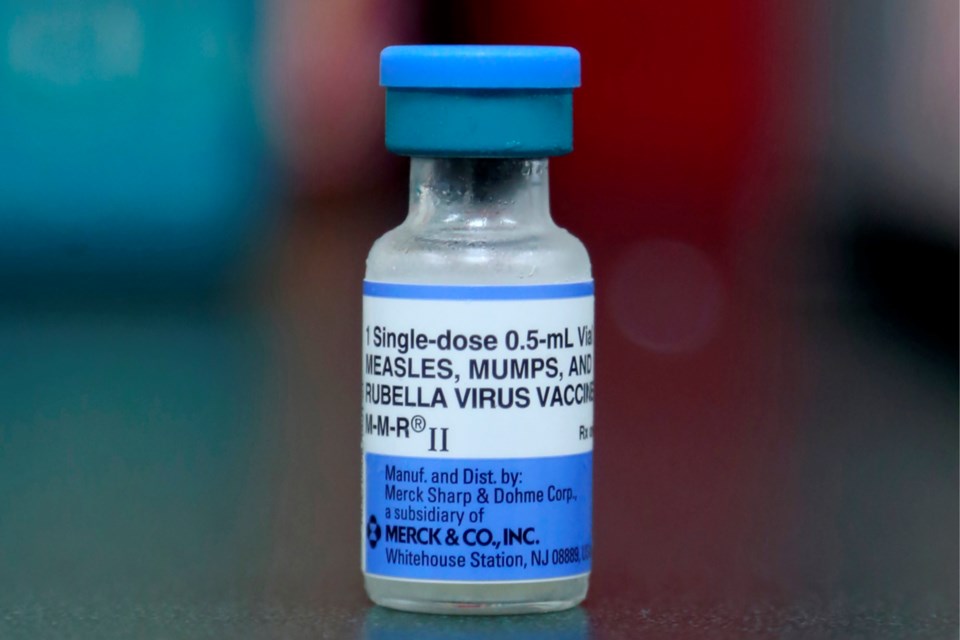Public perception of the importance of routine childhood vaccinations has declined by eight per cent in Canada since before the pandemic, UNICEF says.
A new report issued by the agency said that confidence in vaccination against diseases such as measles, polio and tetanus fell in 52 out of 55 countries surveyed.
The proportion of Canadians who believe childhood immunizations are important decreased from 90 per cent to 82 per cent over the last three years, UNICEF's report said.
"That's a significant drop," said Dr. Cora Constantinescu, a pediatric infectious diseases specialist who runs a vaccine hesitancy clinic at Alberta Children's Hospital.
Although the UNICEF report says the majority of Canadians still support childhood vaccinations, 82 per cent is not enough to achieve a “comfortable herd immunity level,” against preventable childhood illnesses, she said.
Good protection against measles, for example, requires a vaccination rate of over 95 per cent, Constantinescu said.
There have been recent cases of measles, whooping cough, and meningococcal disease in various parts of Canada, she said.
China, India and Mexico were the only countries studied where people's confidence in childhood vaccines stayed the same or improved, UNICEF's report said.
It estimates that 67 million children around the world "missed out entirely or partially on routine immunization between 2019 and 2021."
"The world is facing a red alert for children's health. Both in Canada and globally, stronger action is needed to boost childhood immunization and prevent vaccine confidence from slipping further away," David Morley, president and CEO of UNICEF Canada, said in a news release.
"Now is the time to build back immunity. If we do not, more children will die of easily preventable diseases such as measles, tetanus and polio," Morley said.
Routine childhood immunizations fell during the pandemic due to several factors, including disrupted health-care access, shortages of health-care workers, and stay-at-home recommendations to prevent the spread of COVID-19, UNICEF's report said.
"Children born just before or during the pandemic are now moving past the age when they would normally be vaccinated," the report said.
"Urgent action is now needed to catch up on those who missed out on vaccination and to support recovery of immunization services set back during the pandemic."
In Canada, "there were a myriad of reasons for access issues," including school closures, Constantinescu said.
The issue of vaccine hesitancy also needs to be addressed in Canada, she said.
That includes supporting doctors, nurses and pharmacists in their efforts to talk to parents and patients to get them caught up on their routine immunizations.
"Having that recommendation from your trusted health-care provider had a big impact in terms of vaccine uptake," Constantinescu said.
In the longer term, "we need to pivot and start educating our children" about vaccination in schools, she said.
"How you build confidence is if you educate kids about why this is important, why this is a decision they're going to have to make themselves as teenagers and later on, and ultimately maybe even their own children," Constantinescu said.
UNICEF's report was based on data from The Vaccine Confidence Project at the London School of Tropical Hygiene and Medicine. That data came from "nationally representative country surveys."
This report by The Canadian Press was first published April 20, 2023.
Canadian Press health coverage receives support through a partnership with the Canadian Medical Association. CP is solely responsible for this content.
Nicole Ireland, The Canadian Press



